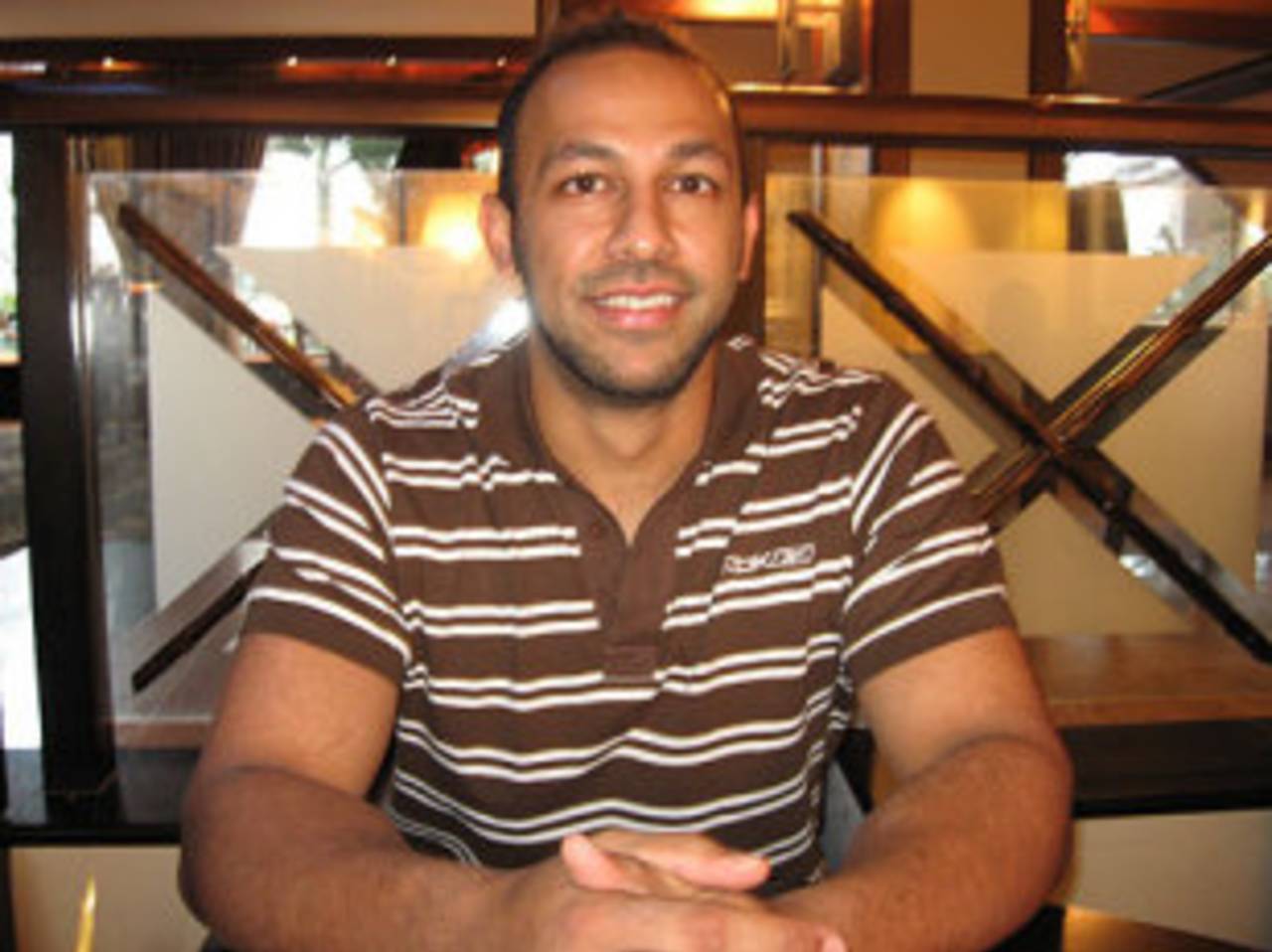The first thing you notice about Hashim Amla's elder brother Ahmed is the lack of the flowing beard. He laughs - which he does often through our conversation - when asked about it. "I am also a practising Muslim; it's just that he has chosen to have an outward expression of his belief. Some of us don't. Also, it's about his mental thing - it does play a major part in his mental make-up and discipline, not only for cricket but other aspects of life. Hash is highly disciplined." Aren't younger brothers usually the more wayward ones? "Maybe the elder one has been keeping an eye on him - don't go this way, go that way, eh?!" Ahmed says.
Ahmed is the captain of the Natal Dolphins cricket team, but it's only in the last four years that he has been consistent and "serious" about the game. He traces the reasons for the differences between him and Hashim to the schools they studied at.
Ahmed went to an Indian school, while Hashim went to Durban High School. Though the age difference between the two is just four years, it was a time of dramatic change. South Africa had begun to take large steps towards becoming the Rainbow Nation.
"When I went to school, I only played with the Indian kids," Ahmed says. "You had separate exams, the whites had separate exams. The integration hadn't occurred yet. But when Hash came along, the system had changed so rapidly. That really helped him. He studied in an integrated school, played with and against white and other coloured kids. It does have a huge impact on the personality. Also, Durban High School was the one that Barry Richards went to - it had a great cricketing culture and history."
While Ahmed was worrying about his future academic and job plans, Hashim was being talked about as a future player. "In an Indian school, you know, you have to become a doctor! Even today, older relatives ask me, 'What do you do besides cricket?' I might be earning more than them, but that's us - the Indian culture is not going to change. Most guys in school studied to become doctors, engineers, accountants.
"When Hashim was under 15 and showing promise, Natal cricket people said he had the potential to play higher. When I was playing in school, you never looked beyond the next game. All you are worrying about is which university you are going to. So he was always focused, more talented and more disciplined than I was."
In the initial years Ahmed was the sole non-white player in his first-class team. How did the others react? Did they feel threatened by him?
"When I was playing in school, you never looked beyond the next game. All you are worrying about is which university you are going to"
"It was a big change for them. Suddenly, a non-white guy has come. One of their own is missing out. Luckily, I scored some runs in the first year, and that showed them that I could bat and was not there for the quota system, you know. That helped. Thankfully, when Hashim came along, he had more people that he could associate with."
Ahmed holds Ashwell Prince in very high regard. "He is 31 and came through that transformation phase. He is the only batsman who has managed to cement his spot coming from the change. The rest are the younger lot who didn't have to face what Prince must have had to face. That talks a lot about his mental make-up and character. He is very tough upstairs. He is the only guy from that age who has been able to adapt to the change - got an opportunity and grasped it."
The talk meanders to how nervous he used to get when watching Hashim bat on TV, and how the family never discuss cricket at the table. Ahmed still has his eye on that national cap, though. "You never know, if I score runs consistently, an opportunity might arise somewhere."
For now, he has to go: it's time to change diapers. Ahmed lives with his wife, Yasmine, daughter Zahra, and newborn son Hamza. "It's great being a father. Even if your wife doesn't smile at you when you go home, especially when you go late, your little daughter comes running to you. 'Daddy, you've come home!'
"But you think the silliest and weirdest things after you become a father. Like, the door must be fully open or completely closed - else, you think she might get hurt, you know. It's amazing what goes on in your mind." He saunters off homewards to play with Zahra. Hope he is not late.
Sriram Veera is a staff writer at Cricinfo
